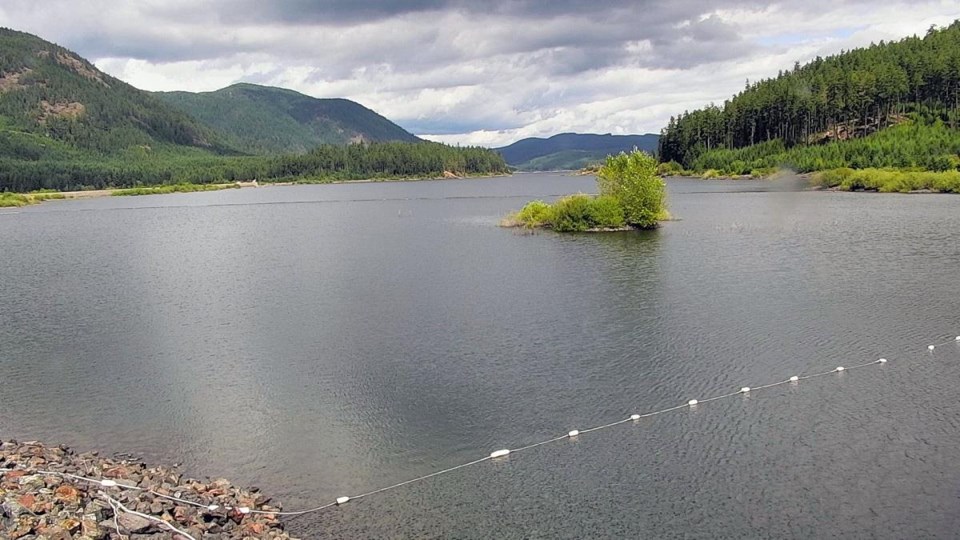Ongoing strikes, protests and rallies are demonstrating active public concern about climate change. It is time to acknowledge and address the water security challenges we face.
The provincial government has identified seasonal drought as one of the top three climate risks facing British Columbians and B.C.’s Auditor General recently said she has “grave concern” with how the province is protecting drinking water sources.
In the face of these challenges, First Nations, local governments, and community-based organizations are taking leadership-through monitoring, management, restoration and education-to both plan for and respond to the impacts of drought and threats to drinking water sources.
However, these local organizations are challenged by insufficient budgets and a lack of provincial support. In recent public consultations on the provincial budget, more than a dozen organizations from watersheds all across B.C. made a united call for a provincial Water Security Fund to support the ongoing capacity required for local water security.
One of the organizations calling for such support is the Cowichan Watershed Board. An inspiring example of reconciliation in action, it is co-chaired by the Cowichan Valley Regional District and Cowichan Tribes. For the past 16 years, the Cowichan River has faced record low flows. More than once, the community has helped salmon by transporting them in trucks to ensure they could reach their spawning grounds, moving them from near-dry riverbeds to deeper waters upstream.
This year, for the first time, water had to be pumped out of Lake Cowichan to stop the river from running completely dry.
In the face of these extraordinary pressures, the board offers steadfast local leadership, undertaking numerous water management programs from salmon habitat restoration, to identifying water storage solutions, to implementing an innovative community-driven watershed protection plan. Remarkably, the board is led by only two part-time staff.
In Peachland, a devastating landslide in 2017 made local water undrinkable for months. In response, the District of Peachland is spending more than $24 million on a new water treatment plant.
The Forest Practices Board released an investigation into complaints about damage to the community watershed, finding that “no one is responsible for managing the cumulative impacts of all activities in these watersheds.” This community is calling for provincial support to undertake the necessary watershed assessment so that these impacts can be addressed, and the community can do what is needed to protect their home waters.
These are not isolated situations. Many communities across B.C., such as Ymir and Glade in the Kootenays, and Shawnigan Lake and Comox on Vancouver Island, are calling for better management of their watersheds.
The Hullcar Valley in the North Okanagan has been under a headline-grabbing water advisory since 2014 due to contamination of its drinking water source.
An independent review commissioned by the Minister of Environment and Climate Change Strategy concluded that systemic problems persist and not enough provincial priority is being placed on keeping B.C.’s water safe.
Yet, among these many troubling findings, there are still reasons to be optimistic. A clear roadmap has emerged from the accumulation of independent expert reports over the past few years.
The provincial government needs to fully implement the Water Sustainability Act, which will provide the foundational framework and regulations needed for the comprehensive and co-ordinated management of watersheds across B.C. There is a strong appetite for this, and many knowledgeable and willing local leaders are ready to work with the Province to implement such a regime in their communities.
The creation of a provincial Water Security Fund would allow communities to do the work that’s needed to ensure water security across B.C. This fund would enable new partnerships at the watershed scale, create good local jobs, amplify existing initiatives, and harness the knowledge, expertise and passion already being demonstrated by so many First Nations, local governments, and watershed organizations.
By unleashing this potential and enabling the work required to protect our drinking water sources and build resilient economies, we can create a lasting legacy that all British Columbians can truly celebrate.
Alan Martin was the director of strategic initiatives at the B.C. Wildlife Federation until his sudden death on Oct. 15. This column is the last article by Martin, a champion of conservation who spent 40 years working on sustainable management of public resources. During his 30-year career in the public sector, he was assistant deputy minister in the Department of Agriculture and Fisheries, and director of the Fish and Wildlife Branch.
Oliver M. Brandes is the associate director at the University of Victoria’s Centre for Global Studies and co-director of the POLIS Project on Ecological Governance. He led the minister-appointed independent expert provincial review of source water protection in the Hullcar Valley in 2017.



